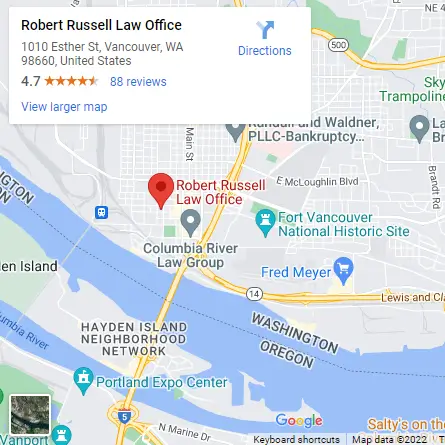Private Parties and Non-Governmental Entities Cannot Garnish Social Security
In short, as a general rule, no one can garnish your Social Security except the government. That means that banks, medical providers, home lenders, etc cannot garnish these funds.
Example 1: If VISA gets a judgment for an unpaid credit card balance and sends a Writ of Garnishment to the Social Security Administration (SSA), the SSA will reject VISA’s attempt to garnish your Social Security.
Further, as of May 1, 2011, a bank served with a Writ of Garnishment must also protect your Social Security benefits on deposit by looking at the source of auto-deposits for the sixty days prior to the garnishment. To the extent they are Social Security, they are automatically protected.
Example 2: If VISA serves a Writ of Garnishment on your bank where you have your Social Security deposited, the bank must then look at your account for the previous 60 days. If you received a $1,200 Social Security auto-deposit in the prior month and another $1,200 auto-deposit in the month prior to that (i,e., the 60 days before the garnishment) then $2,400 is protected. Social Security funds in the account from before the 60 days prior to the garnishment may be available to the garnishing creditor in you did nothing more.
To prevent garnishment of SS funds on deposit above the last two months’ SS auto-deposits, the account holder must fill out out and file with the court and the creditor a Claim of Exemption form that simply notes all the funds in the account are exempt Social Security.
The Federal Government Can Garnish Your Social Security
On the other hand, the federal government can garnish your Social Security benefits for repayment of certain debts, including the following:
- federal income taxes
- federal student loans
- child support and alimony
- nontax debt owed to other federal agencies
- defaulted federal home loans and
- certain civil penalties.
How Much Social Security Can Be Garnished By The Government?
How much Social Security can be garnished depends on the creditor that is seeking payment.
- Taxes: Social Security benefits are subject to a 15% levy to pay delinquent taxes regardless of what amount might be left for you. (Federal Payment Levy Program)
- Student Loans: Social Security benefits are subject to a 15% levy to pay delinquent taxes, provided that your remaining monthly benefit cannot drop below $750. (Federal Payment Levy Program)
- Child Support: Social Security benefits are subject to a 50% – 65% levy depending on the type of claim. The maximum garnishment depends on the state where you live. You can lose up to 50% of your benefits if you are obligated to support a child or spouse in addition to the one for which the levy is sought. If you do not have to support separate child or spouse, then you can lose up to 60%, but that can increase to 65% if you are more than 12 weeks in arrears. (Court Ordered Garnishment System.)
The Process To Garnish Your Social Security
Normally, you will have about 120 days notice of the fedarl governments effort to garnish your Social Security benefits. You will receive several notices. During this period you can try to avoid garnishment by showing it is improper and should not occur or try to make voluntary payment arrangements. You have 30 days from the date of the final notice to arrive at voluntary payment arrangements. If it determined that the garnishment should occur, you will have a chance to appeal.
Want More Information on Garnishing Social Security and Protection?
For more information, you can go to the source of the rule and another article on the subject.
- The Treasury Department’s Guidelines on the subject
- The SSA’s information on the subject
- Bankrate Article on the subject
Social Security Garnishment – Options – Free Consultation
If you are concerned that your Social Security might be garnished, we are here to help. Just call for a free consultation and we’ll help you sort it out.



